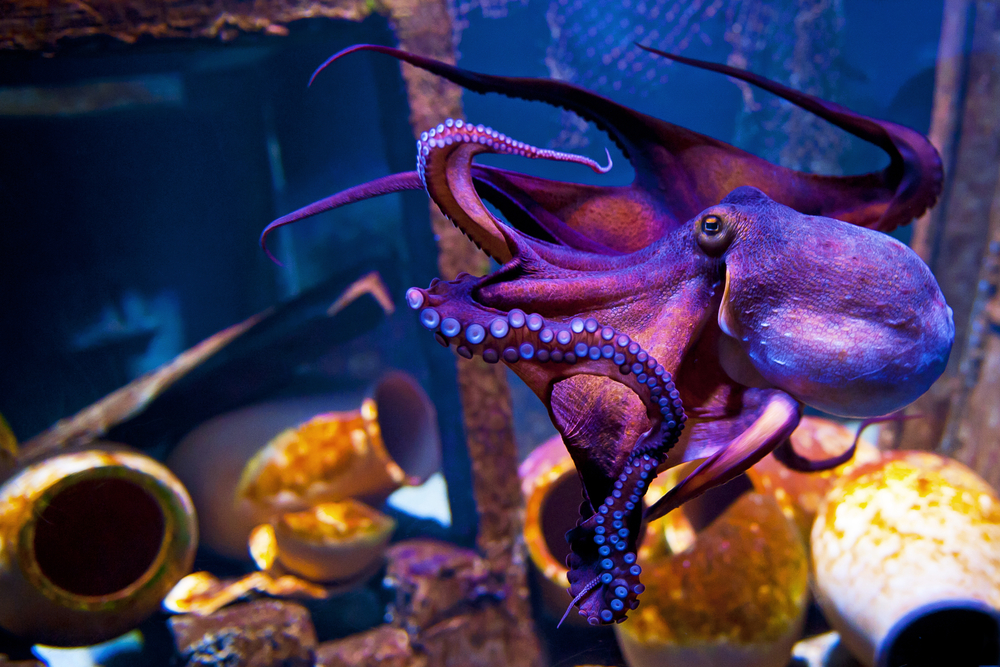
The brain is an amazing thing, especially when you stop to think about how it dictates our social behaviours. Neurologists are proving that once again with one of the most random, potentially controversial studies we’ve heard of in a while—one in which they gave octopuses ecstasy to see how it affects their behaviour towards one another.
We warned you it was random.
Octopuses are antisocial creatures that prefer to stick to themselves until it’s time to mate. In fact, these cephalopods are so independent that when scientists keep them for studies they need to house them separately so they don’t kill each other. (To be fair that sounds like some humans we know.) So that got neurologist Gul Dolen at Johns Hopkins University and her colleague Eric Edsinger at the Marine Biological Laboratory in Woods Hole, Mass., wondering whether giving the animals the psychoactive drug Methylenedioxymethamphetamine (MDMA) would alter their behaviour.
As it turns out, it did.
The researchers basically dunked hand-sized octopuses into beakers filled with a mix of seawater and MMDA so the animals would absorb the drug through their gills. With an extremely high dose in their systems the creatures began taking on “postures of hypervigilance” and “sat in the corners of the tanks and stared at everything.” So the researchers lowered the amount of MMDA in the tanks to the same level a human might consume and tried again. This time, the octopuses became positively cuddly.
“After MDMA, they were essentially hugging,” said Dolen, revealing the octopuses were “really just much more relaxed in posture, and using a lot more of their body to interact with the other octopuses.”
The inspiration for the study began a few years ago after scientists were able to sequence the full genetic code of the California two-spot octopus. Dolen was curious about the effects of serotonin on the animals after she learned they have almost identical genes for a protein that binds serotonin to brain cells that humans do.
“Serotonin has been encoding social functions for a very, very long time. At least 500 million years ago it started doing this function,” she said in the results, which were published in Current Biology.
So does this mean the “love drug” could actually make octopuses fall for each other the way humans supposedly do on escstacy? Not so fast, say the pros. Those eight-limbed snuggles don’t necessarily translate into actual friendliness.
“Is it really affection? How would we know? It’s totally fascinating and super-suggestive, but I am not a hundred percent convinced that this is doing the same thing in octopus and in human,” Zachary Mainen, a neuroscientist at the Champalimaud Centre for the Unknown in Portugal, told NPR. “I like the fact that they’ve shown that a species so alien to us as an octopus has a molecule, a serotonin transporter, which can be affected by a drug which affects us, and that the drug has a somewhat similar effect on the octopus. It just shows us how much we don’t know and how much there is out there to understand.”
“They have this huge complex brain that they’ve built, that has absolutely no business acting like ours does — but here they show that it does,” Judit Pungor, a neuroscientist at the University of Oregon, also told NPR. “The fact that they induced this very sort of gentle, cuddly behaviour is really pretty fascinating.”
Fascinating may be an understatement. Considering our previous benchmark for the cephalopods was murder, we’d say snuggling after consuming a party drug is a definite improvement, wouldn’t you?
